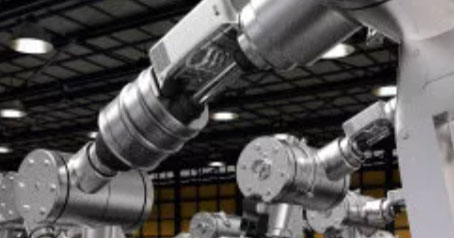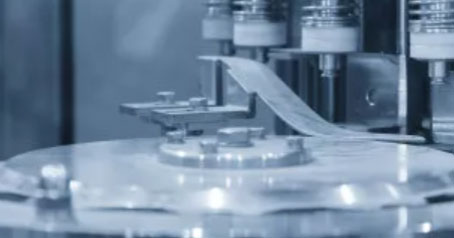In the world of industrial machinery, there are countless types of pumps that are essential for transferring liquids and fluids. One popular choice among many industries is the low pressure vane pump. These pumps are known for their efficiency and reliability, making them a top choice for a wide range of applications. In this blog, we will explore how low pressure vane pumps work and why they are such a valuable asset to countless industries.
What is a Low Pressure Vane Pump?
A low pressure vane pump is a type of positive displacement pump that uses rotating vanes to create suction and draw fluid into the pump. The vanes are typically made of a durable material such as steel or graphite, and are attached to a central rotor. As the rotor spins, the vanes move in and out of the pump cavity, creating a partial vacuum that draws fluid into the pump.
How Do Low Pressure Vane Pumps Work?
The operation of a low pressure vane pump is relatively simple yet incredibly effective. As the rotor spins, the vanes extend and retract, creating chambers of varying sizes within the pump. As the vanes move, they come into contact with the fluid being pumped, creating suction and drawing the fluid into the pump. Once the fluid is inside the pump, the vanes continue to rotate, forcing the fluid through the pump and out into the desired system or application.
One of the key advantages of low pressure vane pump is their ability to operate at low pressures without sacrificing performance. This makes them ideal for applications where high pressures are not necessary, such as lubrication systems, cooling systems, or fuel transfer systems. Additionally, low pressure vane pumps are known for their smooth and consistent flow rates, making them a reliable choice for a wide range of applications.
Benefits of Low Pressure Vane Pumps
There are several key benefits to using low pressure vane pumps in industrial applications. Some of the most notable advantages include:
Efficiency: Low pressure vane pumps are highly efficient, with minimal energy loss during operation. This can help companies save on energy costs and reduce their overall carbon footprint.
Reliability: Low pressure vane pumps are known for their long lifespan and durability. With proper maintenance, these pumps can provide years of reliable service, making them a cost-effective choice for many industries.
Versatility: Low pressure vane pumps are incredibly versatile, with the ability to handle a wide range of fluids and viscosities. This makes them a popular choice for industries that require flexibility in their pumping systems.
Low Maintenance: Despite their complex operation, low pressure vane pumps require minimal maintenance to keep them running smoothly. This can help reduce downtime and increase overall efficiency in industrial operations.
Low-pressure vane pumps are a valuable asset to countless industries due to their efficiency, reliability, and versatility. Whether used in lubrication systems, cooling systems, or fuel transfer systems, these pumps are an essential component of many industrial applications. By understanding how low pressure vane pumps work and the benefits they offer, companies can make informed decisions when choosing a pumping system for their operations. With their long lifespan, minimal maintenance requirements, and consistent performance, low pressure vane pumps are a top choice for companies looking to optimize their pumping systems.
 French
French
 Portuguese
Portuguese
 Russian
Russian
 German
German
 Spanish
Spanish
 Japanese
Japanese
 Korean
Korean
 Irish
Irish
 Greek
Greek
 Turkish
Turkish
 Italian
Italian
 Danish
Danish
 Romanian
Romanian
 Indonesian
Indonesian
 Czech
Czech
 Afrikaans
Afrikaans
 Swedish
Swedish
 Polish
Polish
 Basque
Basque
 Catalan
Catalan
 Esperanto
Esperanto
 Hindi
Hindi
 Lao
Lao
 Albanian
Albanian
 Amharic
Amharic
 Armenian
Armenian
 Azerbaijani
Azerbaijani
 Belarusian
Belarusian
 Bengali
Bengali
 Bosnian
Bosnian
 Bulgarian
Bulgarian
 Cebuano
Cebuano
 Chichewa
Chichewa
 Corsican
Corsican
 Croatian
Croatian
 Dutch
Dutch
 Estonian
Estonian
 Filipino
Filipino
 Finnish
Finnish
 Frisian
Frisian
 Galician
Galician
 Georgian
Georgian
 Gujarati
Gujarati
 Haitian
Haitian
 Hausa
Hausa
 Hawaiian
Hawaiian
 Hebrew
Hebrew
 Hmong
Hmong
 Hungarian
Hungarian
 Icelandic
Icelandic
 Igbo
Igbo
 Javanese
Javanese
 Kannada
Kannada
 Kazakh
Kazakh
 Khmer
Khmer
 Kurdish
Kurdish
 Kyrgyz
Kyrgyz
 Latin
Latin
 Latvian
Latvian
 Lithuanian
Lithuanian
 Luxembourg
Luxembourg
 Macedoniar
Macedoniar
 Malagasy
Malagasy
 Malay
Malay
 Malayalam
Malayalam
 Maltese
Maltese
 Maori
Maori
 Marathi
Marathi
 Mongolian
Mongolian
 Burmese
Burmese
 Nepali
Nepali
 Norwegian
Norwegian
 Pashto
Pashto
 Persian
Persian
 Punjabi
Punjabi
 Serbian
Serbian
 Sesotho
Sesotho
 Sinhala
Sinhala
 Slovak
Slovak
 Slovenian
Slovenian
 Somali
Somali
 Samoan
Samoan
 Scots Gaelic
Scots Gaelic
 Shona
Shona
 Sindhi
Sindhi
 Sundanese
Sundanese
 Swahili
Swahili
 Tajik
Tajik
 Tamil
Tamil
 Telugu
Telugu
 Thai
Thai
 Ukrainian
Ukrainian
 Urdu
Urdu
 Uzbek
Uzbek
 Vietnamese
Vietnamese
 Welsh
Welsh
 Xhosa
Xhosa
 Yiddish
Yiddish
 Yoruba
Yoruba
 Zulu
Zulu







